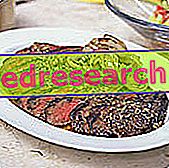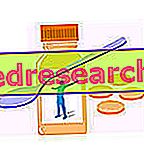What's this
What is decaffeinated coffee?
Decaffeinated coffee is a beverage obtained by infusion of decaffeinated drugs, ie subjected to caffeine removal - a process that occurs when the coffee seeds are still green and raw.

Also read: "Caffè Verde Crudo".
Decaffeinated coffee was born at the beginning of the 20th century. Ludwig Roselius invented the process on behalf of the "Kaffee-Handels-Aktien-Gesellschaft"; the first decaffeinated coffee was marketed under the name of HAG coffee.
deepening
Coffee is a noun that can indicate:
- Plants of the botanical genus Coffea - Arabica and robusta species, of which many varieties are cultivated
- Seeds from these products - raw or roasted, whole or powdered
- Drinks made by infusion of coffee drug - the coffee drug is not all the same; that obtained from the robust species is more bitter in taste, less aromatic and rich in caffeine, while that obtained from the Arabica species is sweeter in taste, aromatic and less rich in caffeine.
decaffeination
What is decaffeination?
Decaffeinating means "eliminating caffeine"; therefore decaffeination is a chemical-physical, industrial process of removing caffeine from coffee seeds - contained in percentages of 1.5-2.0%.
Why decaffeinate?
Caffeine is, chemically speaking, an alkaloid. More precisely defined 1, 3, 7 - trimethylxanthine, this exerts various pharmacological effects on the organism. In general it is used to say that caffeine has a stimulating or exciting, or sympathetic-mimetic, impact on the nervous system; increases nerve activation, heart rate etc. Like all active ingredients, caffeine can also trigger side effects; the most famous are the insomniacs, the heart patients, the hypertensive and those suffering from stomach diseases.
To increase the consumption of "real coffee" - not chicory coffee, barley coffee, etc. - even to people who are hypersensitive to caffeine, while maintaining their organoleptic and gustatory properties almost unchanged, the industry has developed the decaffeination process.
Did you know that ...
Coffee is not the only drug containing methylxanthines. These, widespread in nature in various chemical forms, are also abundantly contained in tea leaves, in the form of theophylline, and in cocoa beans, in the form of theobromine.
Furthermore, caffeine, theophylline and theobromine are reactive molecules that can be found in bound form. In raw green coffee, for example, caffeine is linked to chlorogenic acid, giving rise to chlorogenated. Only with the roasting process does this complex break down releasing the biologically active methylxanthine. A similar reaction occurs with the fermentation of tea; the green one, natural, contains less theophylline instead abundant in fermented and dark teas.
How does decaffeination take place?
Decaffeination is a process applied to coffee seeds that are still green, before roasting or roasting.
To remove caffeine from coffee seeds you can use more than one system; the two procedures could be summarized as follows:
| Procedure with ethyl acetate | Supercritical carbon dioxide procedure |
| Dilution of caffeine from raw green seeds of coffee with ethyl acetate, which separates the lipidic fraction rich in caffeine | Immersion of green seeds in hot water or Swiss Water Process, to obtain 30-40% humidity |
Steam treatment, to evaporate the solvents and separate the caffeine that will be recovered | Passage in column extractors with supercritical carbon dioxide at 40-80 ° C and 120-180 atmospheres which extracts caffeine, subsequently separated in another plant for cooling and depressurization, or by means of activated carbon |
Drying and roasting. | Grain separation, drying and roasting. |
Of the two decaffeination methods, the one that best preserves the organoleptic and gustatory characteristics of the product is undoubtedly the procedure with superactive carbon dioxide. More selective in removing the alkaloid, it also sacrifices fewer secondary compounds including natural seed oils.
The decaffeination process obviously requires additional processing costs. However, the extracted caffeine is not lost, but purchased by the pharmaceutical companies that rework it to make it usable - drugs, cosmetics, food supplements.
Health
Decaffeinated coffee: does it hurt?
Many wonder if decaffeinated coffee can harm health. The answer is not simple. We begin by specifying that decaffeinated coffee follows, after decaffeination, the same process as traditional coffee. This means that, apart from caffeine, the two types of coffee have the same effects on the body. Let's go into more detail.
Decaffeinated coffee, caffeine and health
The side effects of caffeine are of various types. In this sense, decaffeinated coffee is not as bad as the traditional one. Let us briefly summarize the most frequent undesirable reactions, at normal dosages, of caffeine on the body:
- Insomnia
- Excitement, anxiety and nervousness
- Increased heart rate and slight arrhythmias
- Increased blood pressure
- Increased glomerular filtration of the kidneys and diuresis
- Increased gastric secretion and irritation of the mucous membranes of the stomach, with nausea and pain
- Increased intestinal peristalsis and mucosal irritation with diarrhea.
These are not the only ones but they are certainly the most common. For more information, see also: Caffeine: side effects.
Note : caffeine is a molecule that also has antioxidant power. One certainly cannot rely on it, given the side effects, to combat the oxidative stress of the organism; however, when choosing the type of coffee, normal or decaffeinated, the aspect of the coin should not be overlooked.
Decaffeinated coffee, acrylamide and health
Coffee roasting gives rise to a series of carbonization products which, in excess, can harm health. The same method that allows coffee to gain aromas and flavors - at the base of which there are Maillard reactions - is responsible for the accumulation of undesirable compounds. The most abundant and feared is undoubtedly acrylamide (acrylamide). This acrylic acid amide is formed during excessively intense and prolonged heat treatments; it is not only present in coffee, but also in fried foods, in toasted grilled bread etc. Too much acrylamide in the diet is related to toxicity to the nervous and reproductive systems and to the increase in the incidence of tumors for all the tissues with which it comes into contact. In this regard, decaffeinated coffee harms health as much as normal.
Decaffeinated coffee, solvents and health
The real reason why, in the past, the news spread that decaffeinated coffee could harm health is that dichloromethane was used to extract caffeine. Also called methylene chloride (DCM), this alkyl halide is a true solvent widely used in organic chemistry and potentially harmful to health . Precisely for this reason, today the use of DCM is absolutely prohibited in the food industry .
The other solvents used today such as acetyl acetate and other systems such as the supercritical carbon dioxide procedure are instead totally harmless, which is why decaffeinated coffee available on the market today, if we do not consider the caffeine concentration, harms exactly like that normal.
Decaffeinated coffee, diterpenes and health
Too much coffee can hurt your health, but the right amount could help increase the intake of desirable nutritional factors.
Among these, the most important certainly belong to the fat category; these are the diterpenes, lipids naturally found in coffee. Diterpenes form the basis of some important factors such as retinol, retinal and fitolo, known for their antioxidant, antimicrobial and anti-inflammatory properties. Studies in rats have also shown that cafestol can exert an antitumor and cholesterol-lowering effect.
On the other hand, the decaffeination process, especially with the use of solvents, tends to reduce the concentration of fat in the drug and in the drink. This means that, while eliminating caffeine, by dissolving and skimming the fat in the seeds, their nutritional composition is negatively affected.
From this point of view, the health impact of normal coffee is considered better than that of decaffeinated coffee.



